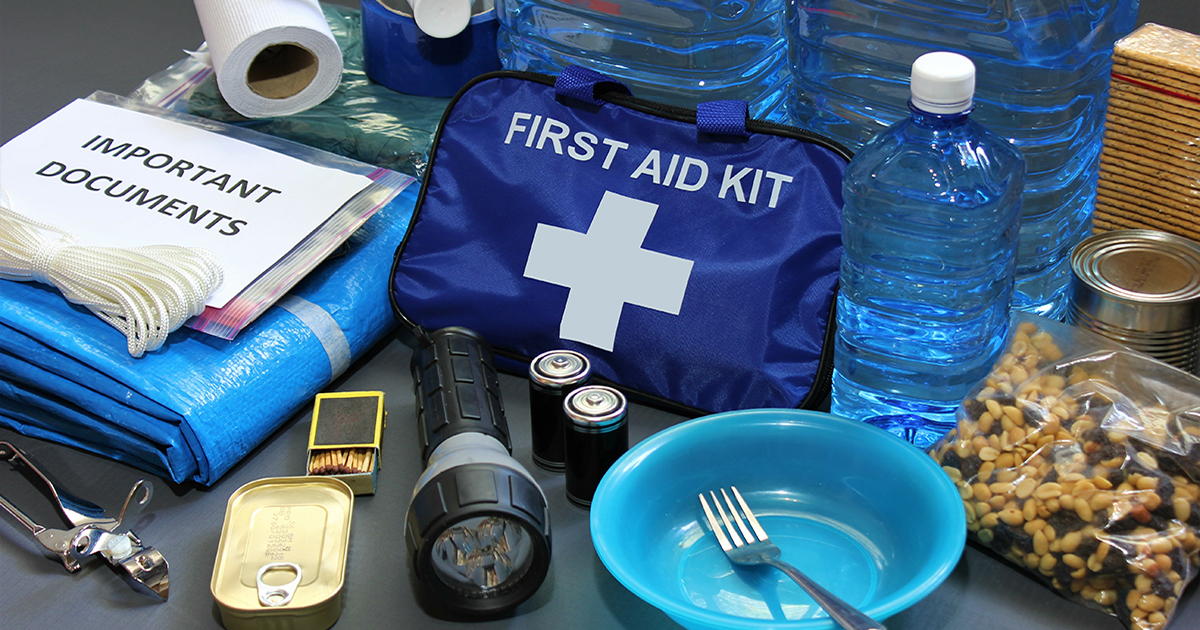When it comes to emergency situations, you never want to be caught ill-prepared. Emergencies can occur at any time, with little to no warning. When this happens, it’s best to be prepared with what you can. Read on for a list of 5 tools to have in case of emergency situations.

1. Flashlight
Flashlights are incredibly useful tools to have around in case of an emergency situation. Not only does it serve as an illumination device, it can also be useful for defense-type situations. Let’s take a look at a couple scenarios in which a flashlight could be extremely handy:
Scenario: You’re in a hurricane, and the power just blew out. It’s nighttime, so the sun has already gone down, leaving you with little to no visibility around your home and outside. You need to check the breaker box, but it’s down in the basement. Having the brightest flashlight readily available will help you and your family navigate to a safe area, while giving you the light you need to check the breaker box or back-up generator.
Scenario: You’ve come home from work and you notice the back door is open. After hearing some rustling around, you grab your tactical flashlight for safety, in case you find an intruder in your home. Luckily, your spouse just left the backdoor open and everything is fine! But, having that tactical flashlight with a strike bezel tip definitely gave you a little more peace of mind.
2. First Aid Kit
While first aid kits are common, you never want to find yourself in a situation without one. Filled with bandages, tweezers, gauze, ibuprofen, and more, First Aid kits can truly save a life until first responders can assist.
You can find pre-packaged first aid kits at your local grocery store, like Wal-Mart or Target. Or, you can build your own with supplies you need. To create your own, make sure you include these products: band-aids, antibacterial ointment, gauze, ace bandages, sterilizing wipes, ibuprofen, tweezers, gloves, and medical tape. Feel free to do more research into the items you’ll need in your first-aid kit.
3. Important Documents
Important documents, such as: passports, ID cards, and birth certificates, can be difficult to replace if lost. Emergencies, like fires or floods, are common culprits to damaging these items, so you’ll want to keep them stored in a waterproof/fireproof safe or something similar.
Another idea to keep these documents safe is to keep them in a ‘grab-and-go’ bag or backpack, in case you need to leave your location quickly. Having them compiled in one area will make it easy to remember when your adrenaline is running high.
4. Contact Information
As we’ve discussed here, the thing about emergency situations is: you never know what will happen. Let’s say you lose your phone, or you don’t have access to electricity. Having contact information, of family and friends, written down can be extremely helpful if you’re out of reach. Unless you’ve memorized your entire phonebook (kudos to you, if you do!), it’s usually not top of mind to keep phone numbers or addresses written down and safely kept.
5. Cash
In a world of credit, debit, and wireless money transfer apps, keeping cash is becoming increasingly uncommon. However, we challenge that in case of an emergency, cash is the most valuable thing you can have on you. Even a small sum, like $20, $50, or $100, can really take you far when you’re in the middle of an emergency.
While we can never truly be 100% prepared for an emergency, future-you will be so thankful to have taken the little steps to minimize the stress of a highly intense situation. When you have these 5 things on hand or ready-to-go, you can rest easy knowing you’re preparing yourself for unforeseen events.